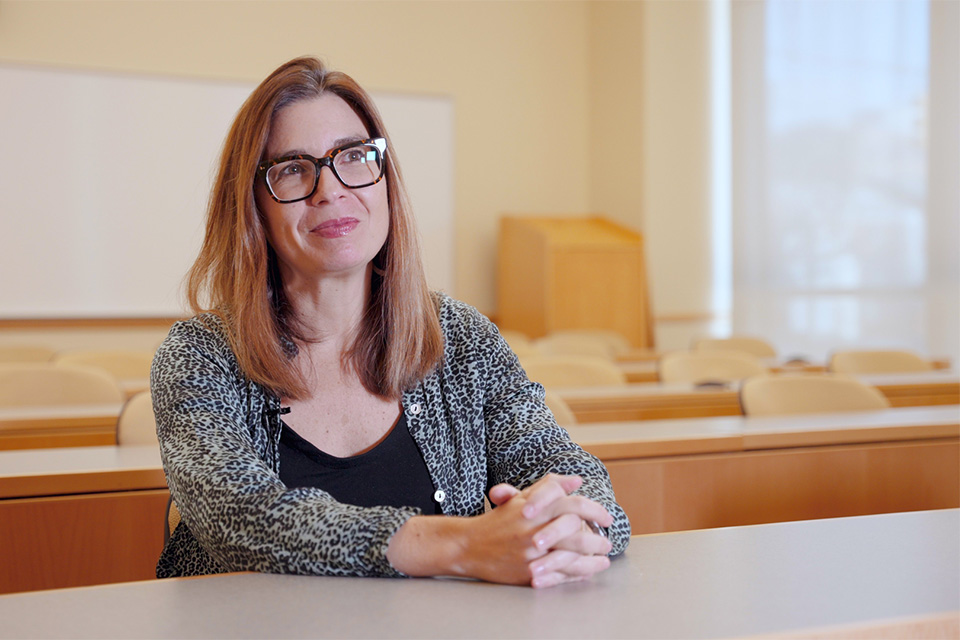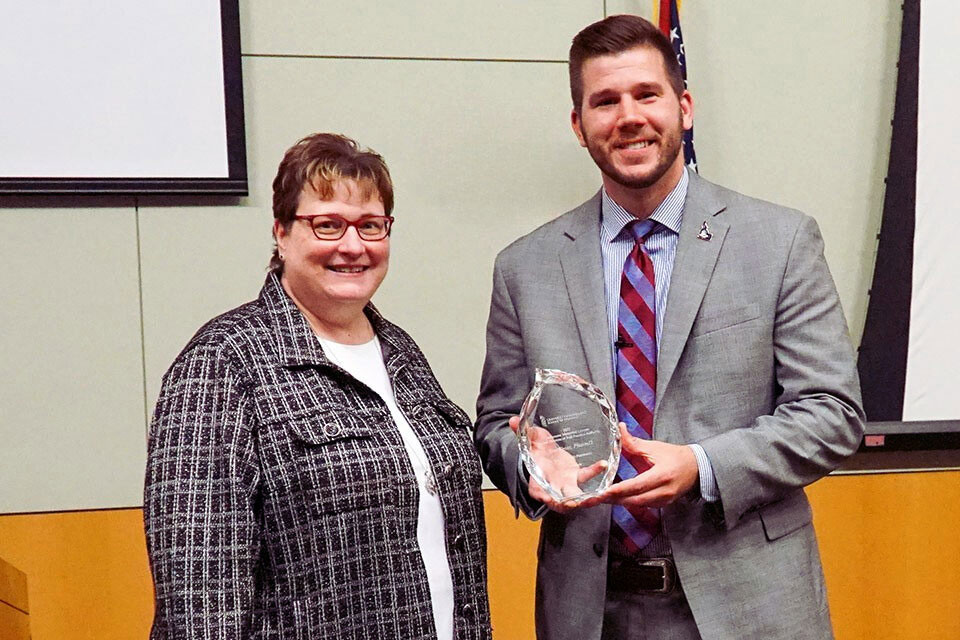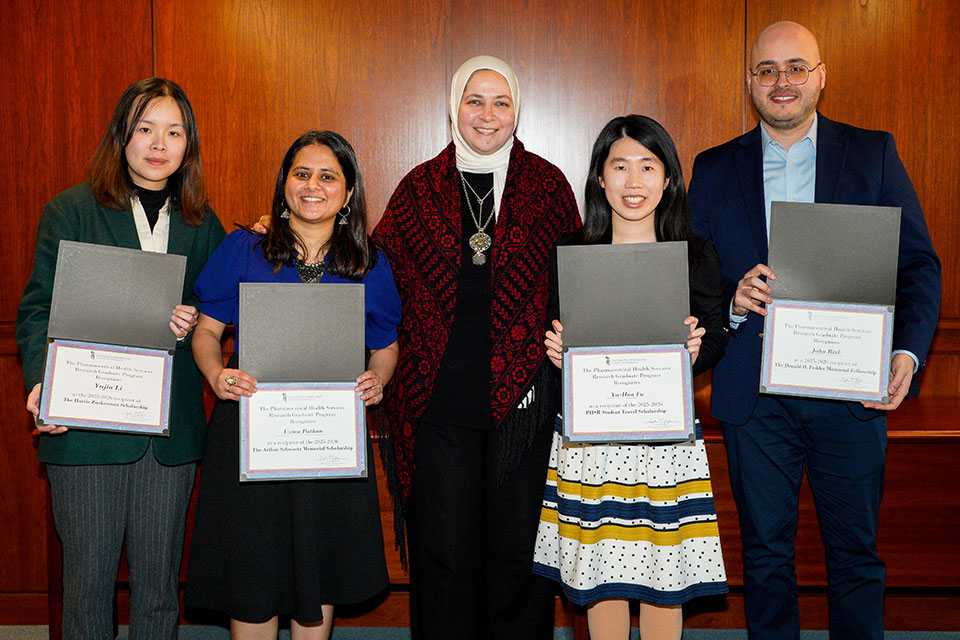Villalonga Olives Receives NIH Grant to Measure Structural Racism
Ester Villalonga Olives is an associate professor of practice, sciences, and health outcomes research.

By Andrew Tie
December 13, 2023
A faculty member in the Department of Practice, Sciences, and Health Outcomes Research (P-SHOR) at the University of Maryland School of Pharmacy is leading an effort to create a new research tool to advance health equity.
Ester Villalonga Olives, PhD, MSc, an associate professor of P-SHOR, has received a four-year, $3 million grant from the National Institutes of Health (NIH) for a project titled, “Assessing intersectional, multilevel and multidimensional structural racism for English- and Spanish-speaking populations in the US.”
“This new project led by Dr. Villalonga Olives has the potential to transform discussion and research around racial inequities,” said Jill A. Morgan, PharmD, BCPS, BCPPS, FNAP, chair and professor of P-SHOR. “The grant also marks a milestone for Dr. Villalonga Olives’ career and is a testament to her hard work in becoming a senior research investigator.”
Villalonga Olives – whose research has previously studied social determinants of health – is interested in addressing structural racism and the ways in which multiple systems and institutions interact to assert racist policies, practices, and beliefs about people in a marginalized group. Examples of structural racism might include segregation, redlining, or health care access.
To better quantify structural racism, Villalonga Olives is leading a team that will develop a standard metric called the Structural Racism Measure to compare the forces that have affected Black and Hispanic/Latino people. The multidisciplinary research team led by Villalonga Olives is comprised of social epidemiologists, behavioral scientists, psychometricians from Yale University, Duke University, Harvard University, Johns Hopkins University and New York University, among others, and community partners.
The Structural Racism Measure will include novel data sources that comprise economic indicators, as well as existing measures of economic discrimination practices. The final tool will be available for researchers, planners, and policymakers to better contextualize and compare structural racism.
“This is a sophisticated research project that will develop a measurement instrument needed in research to better illuminate hidden social and structural factors that contributes to health inequities for Black and Hispanic people,” said Chanel Whittaker, PharmD, BCGP, FASCP, the School of Pharmacy’s assistant dean for equity, diversity, and inclusion and professor of P-SHOR. “I applaud Dr. Villalonga Olives for her dedication to researching this complex, yet necessary topic.”
Last year, Villalonga Olives participated in the National Cancer Institute’s Early Investigator Advance Program, which helps junior faculty members from diverse backgrounds build the skills and connections to pursue their own research grants.
“Through my expertise and network of researchers, I am fortunate to be able to make substantial contributions to the field of health inequalities,” said Villalonga Olives. “This is the most significant accomplishment of my career, the culmination of many years of dedicated effort as both a researcher and a faculty member.”



